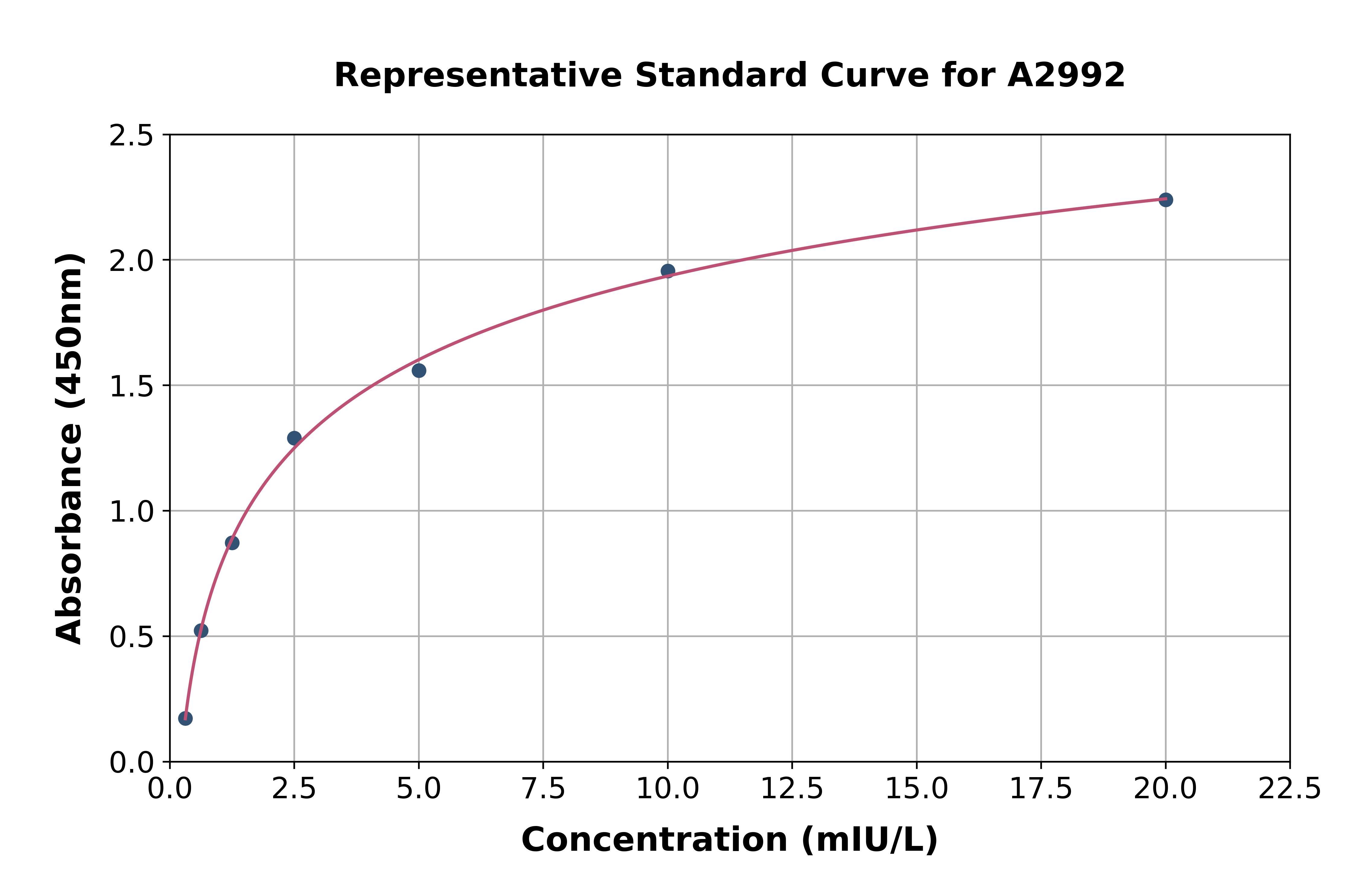Human TSH ELISA Kit
ARG80894
Product group Assays
Overview
- SupplierArigo Biolaboratories
- Product NameHuman TSH ELISA Kit
- Delivery Days Customer23
- ApplicationsELISA
- Assay Sensitivity0.06 mIU/l
- Assay Time10, 90, 20 min (RT)
- CertificationResearch Use Only
- ConjugateHRP
- Protein IDP01215
- Protein NameGlycoprotein hormones alpha chain
- Scientific DescriptionMeasurement of the serum concentration of thyrotropin (TSH), a glycoprotein with a molecular weight of 28,000 daltons and secreted from the anterior pituitary, is generally regarded as the most sensitive indicator available for the diagnosis of primary and secondary (pituitary) hypothyroidism. Increase in serum concentrations of TSH, which is primarily responsible for the synthesis and release of thyroid hormones, is an early and sensitive indicator of decrease thyroid reserve and in conjunction with decreased thyroxine (T4) concentrations is diagnostic of primary hypothyroidism. The expected increase in TSH concentrations demonstrates the classical negative feedback system between the pituitary and thyroid glands. That is, primary thyroid gland failure reduces secretion of the thyroid hormones, which in turn stimulates the release of TSH from the pituitary. Additionally, TSH measurements are equally useful in differentiating secondary and tertiary (hypothalamic) hypothyroidism from the primary thyroid disease. TSH release from the pituitary is regulated by thyrotropin releasing factor (TRH), which is secreted by the hypothalamus, and by direct action of T4 and triiodothyronine (T3), the thyroid hormones, at the pituitary. Increase levels of T3 and T4 reduces the response of the pituitary to the stimulatory effects of TRH. In secondary and tertiary hypothyroidism, concentrations of T4 are usually low and TSH levels are generally low or normal. Either pituitary TSH deficiency (secondary hypothyroidism) or insufficiency of stimulation of the pituitary by TRH (tertiary hypothyroidism) causes this. The TRH stimulation test differentiates these conditions. In secondary hypothyroidism, TSH response to TRH is blunted while a normal or delayed response is obtained in tertiary hypothyroidism. Further, the advent of immunoenzymometric assays has provided the laboratory with sufficient sensitivity to enable the differentiating of hyperthyroidism from euthyroid population and extending the usefulness of TSH measurements. This method is a second-generation assay, which provide the means for discrimination in the hyperthyroid-euthyroid range.
- Storage Instruction2°C to 8°C
- UNSPSC41116100
- SpeciesHuman




